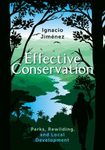![Natural Defense Natural Defense]()
Click to have a closer look
About this book
Contents
Customer reviews
Biography
Related titles
Recommended titles
About this book
For more than a century, we have relied on chemical cures to keep our bodies free from disease and our farms free from bugs and weeds. We rarely consider human and agricultural health together, but both are based on the same ecology, and both are being threatened by organisms that have evolved to resist our antibiotics and pesticides. Patients suffer from C.diff, a painful, potentially lethal gut infection associated with multiple rounds of antibiotics; orange groves rot from insect-borne bacteria; and the blight responsible for the Irish potato famine outmaneuvers fungicides. Our chemicals are failing us.
Fortunately, scientists are finding new solutions that work with, rather than against, nature. Emily Monosson explores science's most innovative strategies, from high-tech gene editing to the ancient practice of fecal transplants. There are viruses that infect and bust apart bacteria; vaccines engineered to better provoke our natural defenses; and insect pheromones that throw crop-destroying moths into a misguided sexual frenzy. Some technologies will ultimately fizzle; others may hold the key to abundant food and unprecedented health. Each represents a growing understanding of how to employ ecology for our own protection.
Monosson gives readers a peek into the fascinating and hopeful world of natural defenses. Her book is full of optimism, not simply for particular cures, but for a sustainable approach to human welfare that will benefit generations to come.
Contents
Preface
Chapter 1. Natural Allies: Our Bacterial Protectors
Chapter 2. Natural Allies: How the Smallest of All Can Help Feed the World
Chapter 3. The Enemy of Our Enemy is Our Friend: Infecting the Infection
Chapter 4. The Enemy of Our Enemy is Our Friend: Replacing Pesticides with Nature’s Chemistry
Chapter 5. Provocation: GMOs and the Science of Protecting Plants, Naturally
Chapter 6. Provocation: The Next Generation of Vaccines
Chapter 7. Know Thine Enemy: Diagnosing Crop Disease Goes High Tech
Chapter 8. Know Thine Enemy: The Future of Diagnostics
Epilogue
Customer Reviews
Biography
Emily Monosson is an environmental toxicologist and writer. She is an independent scholar at the Ronin Institute and an adjunct professor at the University of Massachusetts, Amherst. She is the author of Unnatural Selection: How We are Changing Life, Gene by Gene and Evolution in a Toxic World: How Life Responds to Chemical Threats, and editor of Motherhood, the Elephant in the Laboratory: Women Scientists Speak Out.




































